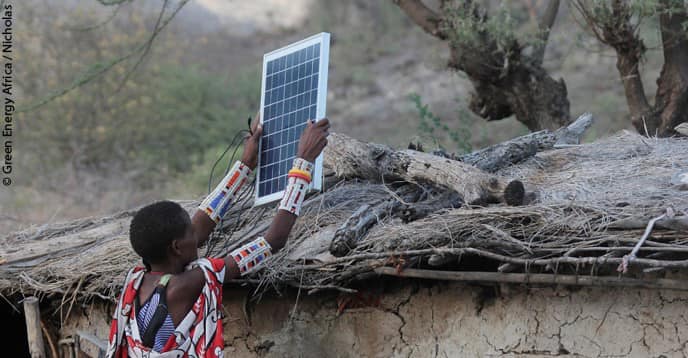There are no products in your shopping cart.
| 0 Items | £0.00 |


NIGERIA'S federal government has revealed that it attracted over $2bn in investments in the renewable energy sector over the past decade as its contribution towards combating climate change and reducing are carbon footprint.
A signatory to the 2015 Paris Climate Change Agreement, Nigeria is committed to reducing greenhouse gases and this involves moving away from polluting fossil fuels to clean energy. To address both problems simultaneously, Nigeria needs to step up the production of clean energy but the country is lagging far behind the rest of the world with initiatives like solar farms, wind farms and generating power from waste.
However, the government claims it has established partnerships with the World Bank, African Development Bank, Global Alliance for People and Planet, Rocky Mountain Institute, and Japan International Cooperation Agency to help address the problem. Other partners it is working with include Sustainable Energy for All, Agence Française de Développement, the United Kingdom Nigeria Infrastructure Advisory Facility, European Union, United Nations Industrial Development Organisation, Global Environment Facility and the United States Agency for International Development.
Rural Electrification Agency (Rea), director Mutari Ibrahim, said: “From 2020 to date, Rea has provided power to over 7.5m people including 1.5m households, delivering 130 mini-grid projects, including 1.3m standalone home systems. The agency has equally deployed over 1,650km of solar street lights, improving power, security and economic growth in rural areas.
“Rea completed 1,403 projects under the capital budget, delivering solar street lights, mini-grid projects, standalone home systems, and grid extension works. Rea has delivered over 500MW of power, electrified numerous communities, created 500,000 new jobs, and attracted over $2bn in investments in the renewable energy sector over the past decade.”
He added that in 2022, as part of the National Poverty Reduction and Growth Strategy programme, Rea secured an additional N4bn in capital injection grants. These grants were to provide clean power standalone home systems to over 50,000 locations, including rural homes, micro-businesses, schools, and faith-based institutions.
Mr Ibrahim added: “Most recently, on the back of the success of the Nigeria Electrification Project, Rea negotiated and secured the advance approval of a $750m facility with the World Bank to expand renewable and rural electrification initiatives, providing additional resources to Nigeria during a challenging period. In response to subsidy removal, Rea is implementing interventions to develop electric mobility, mini-grids, distribute home systems, and deploy streetlights, potentially supporting up to 250,000 households in the coming year.”